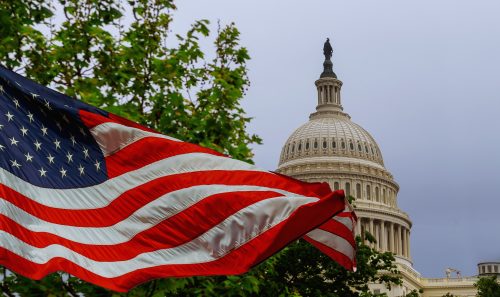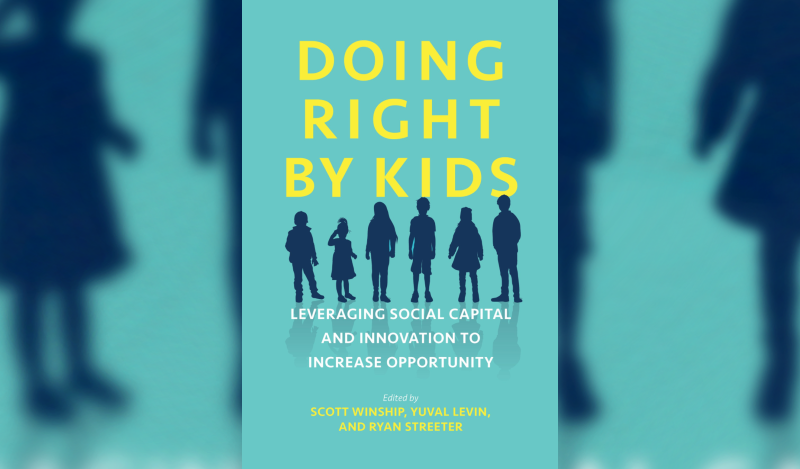
October 3, 2024
Protectionism is Failing and Wrongheaded: An Evaluation of the Post-2017 Shift toward Trade Wars and Industrial Policy
Abstract The Trump–Pence and Biden–Harris administrations enthusiastically embraced protectionism. Each administration explicitly argued for a break from the bipartisan consensus of recent decades that has been generally supportive of free trade and of allowing markets to shape US industrial and employment composition. But the protectionism of the Trump and Biden administrations has not succeeded and…

October 2, 2024
The effect of taxes and transfers on low-earning workers’ income.
Despite misperceptions that the United States is limping through late-stage capitalism, American workers are more highly compensated than ever before—even the lowest earners. The 20th percentile earner—worse-off than 80 percent of workers—had annual earnings 19 percent higher in 2022 than in 1979, after accounting for inflation and a decline in women choosing to work only…

October 2, 2024
AOC’s “Social Housing” Dead End
New York representative Alexandria Ocasio-Cortez, an avatar of the progressive Left, recently shared her vision of how America’s housing shortage should be addressed in a New York Times op-ed cowritten with Senator Tina Smith of New Jersey. Ocasio-Cortez’s vision resurrects the debunked Great Depression-era argument that the private housing market is fundamentally flawed and must be replaced by…

September 27, 2024
Food Insecurity Increases Driven by Middle- and High-Income Households
Last month, the US Department of Agriculture (USDA) released their annual report detailing the prevalence of food insecurity in the United States. The report found that 13.5 percent of all US households are food insecure, or, in plain language, have “limited or uncertain access to adequate food”—a significant increase from the year prior. Just a…

September 24, 2024
Household Food Insecurity Rises Again – Inflation, especially for households ineligible for safety net programs, to blame
Each year the USDA issues a closely-followed report on the extent of food insecurity in the United States. This year, the USDA reported 13.5 percent of US households were food insecure at some point in 2023, which was a statistically significant increase from the 2022 rate of 12.8 percent and higher than the pre-pandemic rate…

September 23, 2024
Toward a Potential Grand Bargain for the Nation
The views expressed in this report are those of the individual authors who collectively constitute the Grand Bargain Committee, co-chaired by Michael R. Strain and Isabel V. Sawhill. This report was sponsored by the Center for Collaborative Democracy and was prepared independent of influence from the center and from any other outside party or institution. It…

September 19, 2024
Government benefit programs already do a lot to help low income families
Politicians, policy analysts, and advocates have proposed increasing the generosity of the Child Tax Credit (CTC), as a means of providing more resources to low-income families with children. Before deciding whether to expand the CTC and by how much, policymakers should be aware of existing tax and transfer policies that already provide a substantial amount…

September 17, 2024
The Future of Work
Since Generation Z has begun entering the workforce, debates swirl around whether young Americans are working too much or not enough. Following Scott Winship’s article in Fusion, Young Voices and Fusion Magazine will host a discussion Tuesday, September 17th to tease out the nuances and future possibilities of what work could—or should—look like for young…

September 17, 2024
Back to School: Shedding Light on Risks and Harm in the Private Student Lending and Servicing Market
At present there are more than 1.74 trillion dollars in student loans outstanding in the US economy. This is a massive amount of money that represents serious liabilities for millions of borrowers across the United States who are grappling with the process of repayment. This massive amount of outstanding debt also represents a tremendous liability…

September 11, 2024
Doing Right by Kids: A Book Event
Event Summary On September 11, AEI’s Scott Winship gathered distinguished experts to launch the new edited volume Doing Right by Kids: Leveraging Social Capital and Innovation to Increase Opportunity, a call to increase opportunity and upward mobility for children from poor families. The first panel focused on the importance of place. Panelists discussed how to contextualize…